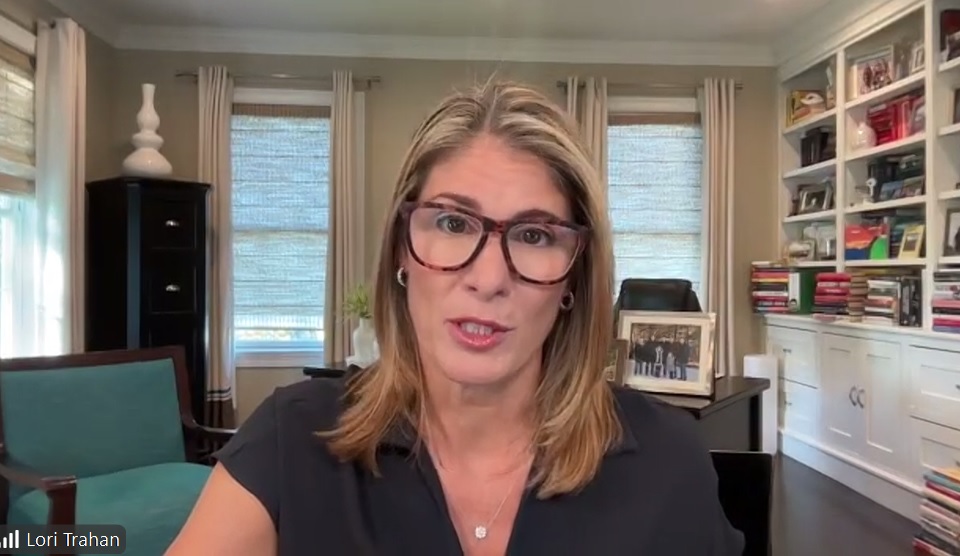Health
Massachusetts Residents Brace for Premium Hikes Without Subsidy Renewal

Residents of Massachusetts face significant increases in their health insurance premiums in 2026 unless Congress extends crucial subsidies set to expire soon. The Massachusetts Health Connector, which provides health insurance coverage to many state residents, is preparing for the upcoming open enrollment period that begins on November 1. The expiration of enhanced premium tax credits, part of the 2022 Inflation Reduction Act, is at the center of discussions regarding government funding and health care coverage.
As the federal government remains shut down, U.S. Senate Democrats have rejected temporary spending measures that could have paved the way for the renewal of these vital tax credits that have aided many during the COVID-19 pandemic. According to the Health Connector’s website, while some individuals may still qualify for financial assistance, the support will likely be reduced, leading to increased out-of-pocket costs for many.
Impacts of Subsidy Expiration on Residents
Beginning January 1, households earning above 400% of the federal poverty level—approximately $62,600 for an individual or $128,400 for a family of four—will no longer qualify for the heavily subsidized ConnectorCare coverage. This change will compel many to seek unsubsidized health plan options, which are expected to be more expensive.
“People can already view their premium increases in their online member portal through the Health Connector,” said Audrey Morse Gasteier, Executive Director of the Health Connector, during a press conference. “The real impact will start to hit mailboxes in the coming weeks, revealing the increased financial burden for those who previously benefited from tax credits.”
Those earning between 300% and 400% of the federal poverty level can still access subsidized care until the end of 2026. However, approximately 36,000 legally present noncitizen members may immediately feel the effects of the One Big Beautiful Bill Act, losing eligibility for subsidized ConnectorCare coverage starting January 1, regardless of the tax credits’ status.
Health Care System Under Strain
Congresswoman Lori Trahan criticized the ongoing political stalemate, asserting, “Every day that they stall, they are gambling with people’s health and their financial security.” The urgency of the situation was echoed by Vice President JD Vance, who expressed concerns about potential waste and fraud within the insurance industry.
Senate Majority Leader John Thune has indicated that discussions are ongoing regarding potential reforms that could accompany any extension of the tax credits. Meanwhile, the Senate Democrats have rejected a stopgap spending bill for the tenth time, demonstrating their commitment to preserving the enhanced premium tax credits.
The enhanced premium tax credits, initiated in 2021, have played a significant role in increasing enrollment in the Affordable Care Act Marketplace from around 11 million to over 24 million, according to the Kaiser Family Foundation (KFF).
During the press conference, Dr. Manju Mahajan, a family medicine physician at UMass Memorial Medical Center, shared a poignant example of the impending health crisis. She described a patient, a 52-year-old single mother working two jobs, whose premium is projected to rise from $75 to $500 per month. “She told me flat out that she would need to drop her coverage,” Mahajan said, highlighting the broader implications for many families.
Infographics from the Health Connector illustrate potential premium increases for couples earning $85,000. For instance, a couple aged 62 in Peabody could see their monthly premium soar from $892 to $2,096, while another couple, aged 57 in Worcester, could see their premium rise from $528 to $1,687.
Valerie Fleishman, Executive Vice President of the Massachusetts Health and Hospital Association, warned that the elimination of these tax credits would deliver a “devastating blow” to patients and a health care system already under immense strain. “If these credits expire, 65,000 Massachusetts residents—enough to fill Gillette Stadium—could lose their coverage over the next 14 months,” she noted.
The potential fallout from losing health insurance could lead to delayed or forgone care, worsening health outcomes, and increased emergency department visits. Fleishman added, “This deepens the strain on our caregivers, worsens capacity challenges, and leads to longer wait times and higher costs for everyone.”
As Health Connector staff brace for an influx of inquiries regarding premium hikes, the emotional toll on families is evident. “When premiums spike, the distress and anxiety it causes for families trying to meet their basic needs can be overwhelming,” Morse Gasteier said. “We anticipate receiving many calls from people trying to understand the changes and their options.”
The situation remains fluid as lawmakers continue to negotiate the future of health care subsidies, with the health and financial security of thousands of Massachusetts residents hanging in the balance.
-

 Science4 weeks ago
Science4 weeks agoALMA Discovers Companion Orbiting Giant Red Star π 1 Gruis
-

 Politics2 months ago
Politics2 months agoSEVENTEEN’s Mingyu Faces Backlash Over Alcohol Incident at Concert
-

 Top Stories2 months ago
Top Stories2 months agoNew ‘Star Trek: Voyager’ Game Demo Released, Players Test Limits
-

 World2 months ago
World2 months agoGlobal Air Forces Ranked by Annual Defense Budgets in 2025
-

 World2 months ago
World2 months agoMass Production of F-35 Fighter Jet Drives Down Costs
-

 World2 months ago
World2 months agoElectrification Challenges Demand Advanced Multiphysics Modeling
-

 Business2 months ago
Business2 months agoGold Investment Surge: Top Mutual Funds and ETF Alternatives
-

 Science2 months ago
Science2 months agoTime Crystals Revolutionize Quantum Computing Potential
-

 Top Stories2 months ago
Top Stories2 months agoDirecTV to Launch AI-Driven Ads with User Likenesses in 2026
-

 Entertainment2 months ago
Entertainment2 months agoFreeport Art Gallery Transforms Waste into Creative Masterpieces
-

 Business2 months ago
Business2 months agoUS Government Denies Coal Lease Bid, Impacting Industry Revival Efforts
-

 Health2 months ago
Health2 months agoGavin Newsom Critiques Trump’s Health and National Guard Plans









